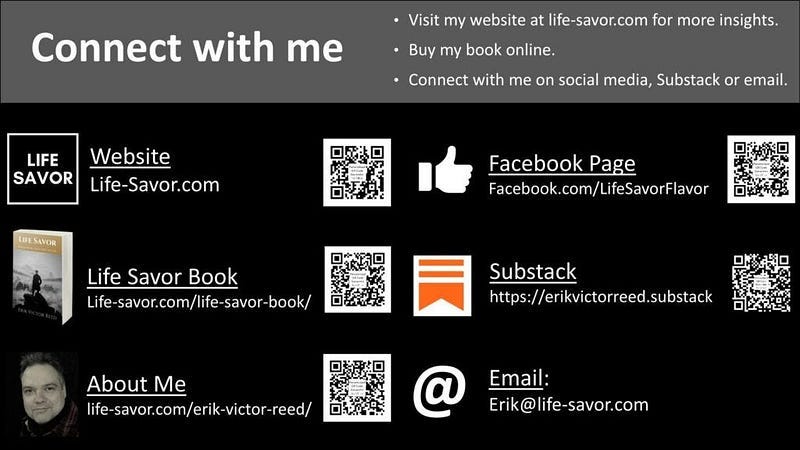An unprofessional but real take on sitting with sadness.
Is depression all bad?
Well, yes, in a sense it is. Because when you’re depressed, nothing feels good.
But in the background, there are some things going on that can actually be helpful to you. Especially if you fully and honestly let yourself be depressed.
Typical Advice
Typical advice from friends, coworkers and family is “Just get over it,” “Get on with your life,” “Be happy!”
To me, as long as it’s not serious clinical depression, it’s okay to be depressed, as long as you recognize it for what it is.
Maybe you’re disappointed by your progress. Or there’s some other frustration. Maybe you just broke up with a girlfriend or boyfriend. That’s hard stuff. It’s devastating to your values—and it’s okay for that to be reflected in some deeply negative emotions for a while. Or maybe you’re not even sure why you’re feeling bad. But, still, you’re depressed for a day or two, or a week, or a month.
In my opinion, that’s okay.
It’s okay to feel bad.
And here’s the good news: depression can actually help us reset over time. It can help us feel—maybe after a day, or a week, or a month—that life is ready to be lived again.
Purging Our Emotions
There’s no faster way to get rid of an emotion than to feel it fully. And then once it’s listened to, it tends to say, “Okay, thank you for acknowledging me. Now I’ll go on my way.”
When it’s more serious, it doesn’t happen just like that, but there’s still this tendency—where the more you listen to your negative emotion and experience it, the more the emotion feels acknowledged and says, “Okay. You understand me. Now I don’t have to raise such a fuss.”
Feeling what you feel instead of denying it often leads to better feelings afterwards and long term.
Conserving Energy
Another good thing about depression is energy conservation.
Depression is a chance for us to totally focus on ourselves for a while, on our soul therapy, on our spiritual needs. Our energy needs. On our emotional core. It’s a chance to hide under the blankets for a while and let ourselves be okay with that.
It’s important to give ourselves permission to recuperate. Sometimes it takes a full state of depression to give ourselves that permission.
Of course, depression doesn’t mean we get a pass on our biggest responsibilities. We still need to care for our kids. We still need to go to work. We still need to pay the rent.
But when possible, we also need to let ourselves recognize when we’re overwhelmed and need to shut down. We’ve got to let ourselves be depressed, when we can.
Depression is often what lets us bottom out—so we can begin again later with less noise and more truth in our life.
This Substack is reader-supported. To receive new posts and support my work, consider becoming a free or paid subscriber.
Managing Expectations
We get overwhelmed—especially from expectations. Paradoxically, depression is a way of managing those expectations downward.
Ideally, we’d never get depressed, because we’d manage expectations perfectly all the time. But that’s not reality, especially if you’re out there doing hard stuff. There’s going to be upset and there’s going to be a sense of overwhelm at times.
Acknowledging depression gets you off the treadmill for a while and helps you stop needing to hit high score all the time. Depression helps flatten expectations for a bit so you can start feeling good about the smallest things again. Such as just getting out of bed in the morning.
To learn more about Life Savor’s philosophy,
read Life Savor: Treasuring Our Gift of Life by Erik Victor Reed.
Depression, after enough time, gets you back down to: “Hey! Y’know what? I’m still alive—and that’s enough for now.” Time spent in depression resets expectations to their lowest point, letting us feel like anything we do is a positive. Depression can paradoxically deliver us into a grateful mindset. At the other end of depression, we often come to appreciate positives we would have previously ignored.
You get out of bed. And you’re like: “Y’know what? I’m proud of myself for getting out of bed.” Whereas before you wouldn’t have appreciated it because you would have expected it of yourself. And you notice other things, too. You notice a breeze in your hair, and the birds singing. And you think, “Y’know what, that’s actually kind of nice, all by itself—even without hitting high score today.”
Before your depression, you might not have been cognizant of any positives. Rather, it might have always been disappointment and frustration. But by going through depression and flattening your expectations, you, baby step by baby step, often come to feel that being alive again is kind of nice, even just by itself.
With enough time spent in depression, we tend to make forays back into life again, from which forays we can slowly and organically become excited again.
We don’t fake it. We don’t force it. We get back slowly and honestly by first letting ourselves be depressed.
Experiencing Depth
Depth of emotion is often missing from our day-to-day lives. Water-cooler talk is often bereft of profundity. And as humans, we need meaningfulness in life.
Depression puts us back in contact with a sense of poignancy. Granted, it’s negative poignancy, but even this melancholy can contain a bit of sweet meaningfulness.
Depression gives us an excuse (which we shouldn’t need, but we sometimes do) to submerge ourselves in a sense of gravity, weightiness and poignancy again. Soaking in poignancy can be viewed by society as impractical to your “success.” Often, it takes something like depression to give us permission to submerge ourselves in heavier waters for a while.
Please understand that I’m all for happiness. I love happiness. And I don’t encourage you to try to feel horrible. But I also don’t encourage you to artificially escape from feeling horrible too soon.
It’s important to fully feel what you feel—in part to engage with feelings of poignancy that might be missing from your life.
Self-Trust
By going through negative emotions and feeling them fully—giving yourself compassionate permission to feel bad—you establish self-trust. You’re establishing that you’re friends with yourself, that you’re there for yourself, that you can be honest with yourself—even in dark times.
And that’s a link and a bond that stays with you. And makes you more stable. And more independent in the big judgmental world out there.
Without admitting and feeling negative emotions, we become fake people who are just putting on smiles all the time. And we don’t trust (or respect) ourselves deep down inside.
Permitting yourself to be depressed is part of being honest with yourself, and it’s part of establishing a friendship with yourself that can last a lifetime.
Parting Thoughts
I hope your life is going well, and I hope you’re able to occasionally appreciate your life. That’s the hope of me and of the Life Savor project. I hope there’s more happiness in your life than “not happiness.”
But if you are depressed, I advise you to give yourself a break and let yourself be depressed. Let yourself be honest with yourself—when you can.
(Again, be careful. If you feel like you’re clinically depressed, please see a therapist, or at least talk to your doctor. Therapy and medication (especially medication) can really work wonders.)
It’s okay to be depressed. It’s okay to sit in the dark for a while. It’s okay to not feel good. Don’t let them tell you otherwise. And don’t let them rush you. Find your way back at your own pace. Take whatever time you need to feel bad so you can then rediscover life on your own timetable and rediscover what’s truly most important to you.
By giving yourself time and space for shadow work, you establish a lifelong compassionate friend in yourself—a friend who understands, a friend you can trust, and a friend who will provide a bulwark in life’s most challenging times.
To learn more about Life Savor’s philosophy,
read Life Savor: Treasuring Our Gift of Life by Erik Victor Reed.







